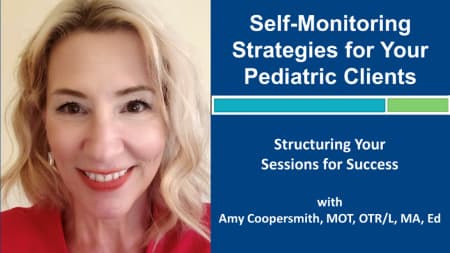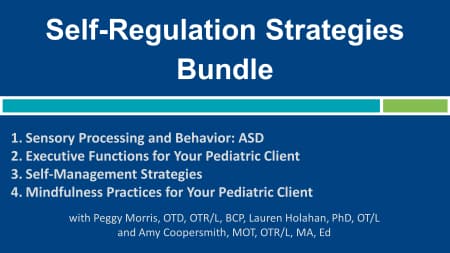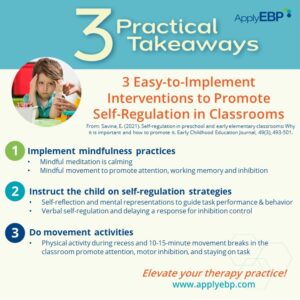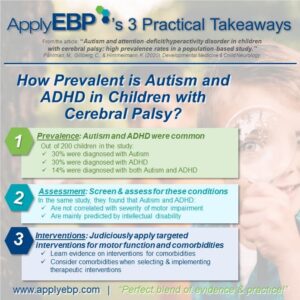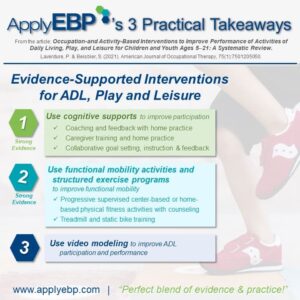3 Practical Takeaways
How Self-regulation Skills in Early Childhood Predict Future Outcomes
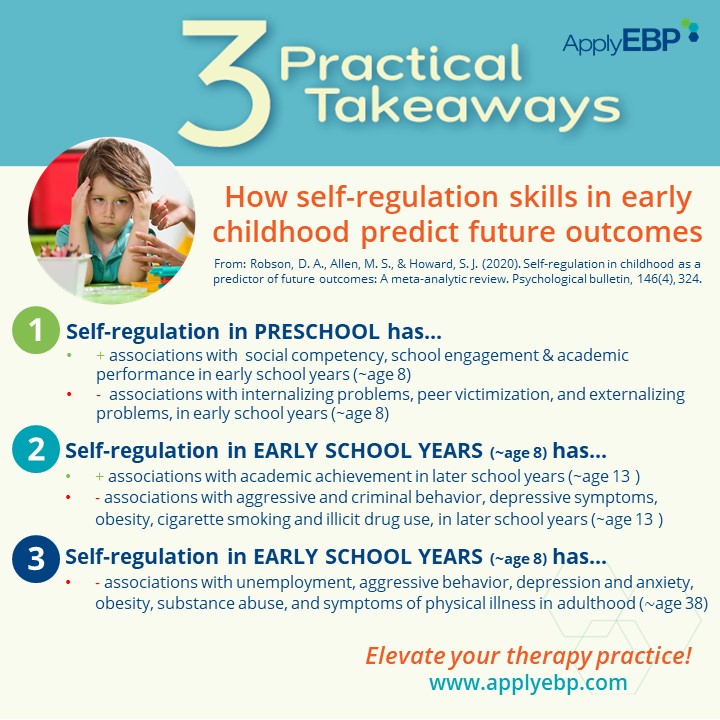
Why is self-regulation important? Here’s the impact in later years.
In this week’s #3PracticalTakeaways from the meta-analysis by Robson, et al (2020), we highlight the associations of self-regulations in preschool and early school years (~age 8) to future outcomes. This highlights the importance of promoting self-regulation skills to our young clients. There are multiple proven ways to do so. At Apply EBP, we recommend multiple positive approaches to fostering self-regulation with our course, Experts Series: Multiple Strategies for your Self-Regulation Toolbox, where 3 experts cover: Sensory processing and behavior, Mindfulness interventions, Self-management and Executive Functions.
Read the article by Robson et al (2020) and add your takeaways in the comments section below.
Click below to download,
print and share the infographics
Continue to Elevate Your Practice with Our...
Featured School
Symposium
Featured Live
Workshop
Featured On-Demand
Webinar
Self-Monitoring Strategies
Featured Webinar
Bundle
Self-Regulation Strategies Bundle
Reference:
Robson, D. A., Allen, M. S., & Howard, S. J. (2020). Self-regulation in childhood as a predictor of future outcomes: A meta-analytic review. Psychological bulletin, 146(4), 324.

